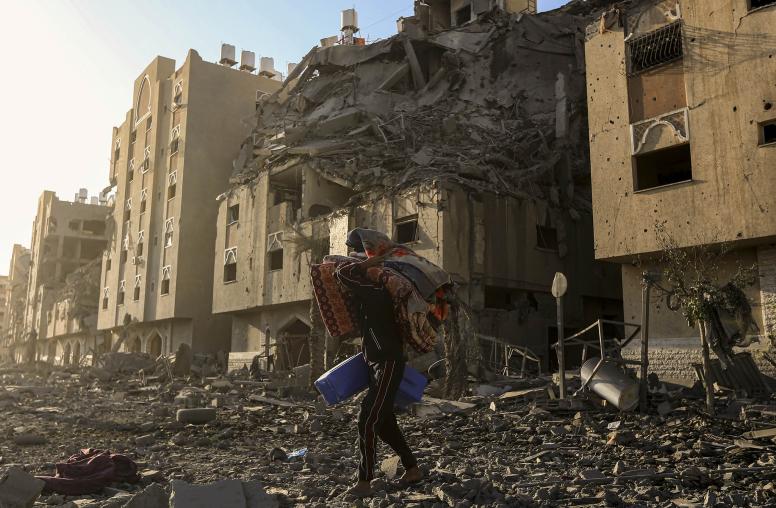Year in Review: Palestine/Israel Outlook
Attempts to revive the stalled peace process bore no fruit in 2011. USIP's Lucy Kurtzer-Ellenbogen recaps 2011 and looks ahead to challenges in 2012.
 Attempts to revive the stalled peace process bore no fruit in 2011. USIP's Lucy Kurtzer-Ellenbogen recaps 2011 and looks ahead to challenges in 2012.
Attempts to revive the stalled peace process bore no fruit in 2011. USIP's Lucy Kurtzer-Ellenbogen recaps 2011 and looks ahead to challenges in 2012.
Overall how do you assess the state of the peace process at the end of 2011?
Attempts to revive the stalled peace process bore no fruit in 2011. Despite U.S. and Quartet efforts to bring Israelis and Palestinians back to the negotiating table, the parties remain locked in stalemate while the surrounding regional order has transformed and remains in flux. The peace process may be at a standstill, yet this has not been a year of quiet in the context of Israeli-Palestinian relations. Succumbing to concern over Palestinian popular sentiment, the Hamas and Fatah leaderships forged an uncomfortable reconciliation agreement, bringing only nominal unity to the Palestinian polity, and deepening concern in Israel over the role that Hamas might play in the future Palestinian leadership.
Meanwhile, Israelis have insisted that a return to the negotiating table be without preconditions, rebuffing the sought-after settlement freeze demanded by the Palestinian leadership of Mahmoud Abbas. The latter, frustrated with perceived Israeli intransigence, followed through on his stated intention to bring a bid for recognition of Palestinian statehood to the U.N. Security Council. The application is pending, though faces likely failure given strong U.S. opposition. Yet, in the meantime, the Palestinians successfully gained admission to the United Nations cultural organization UNESCO, angering Israel and the U.S. who view such appeals to the U.N. as provocative and counterproductive means to circumvent a directly negotiated – and therefore optimal -- solution to the conflict.
In sum, the past year has been marked by a widening distrust between the Palestinian and Israeli leaderships and an inability on the part of international mediators to bridge the divide. As the U.S. enters an election year, it is widely assumed that domestic concerns and preoccupations bode ill for prospects of the current Administration investing heavily in peace process renewal efforts. At the same time, regional turmoil driven by the wave of Arab uprisings seems to argue, analytically, for investment by the parties in the peace process yet in practical terms has engendered enough uncertainty and trepidation – particularly on the part of Israel – that progress remains elusive.
Indeed, 2012 seems set to be a challenging year for Israeli-Palestinian peacemaking. However, as participants in a recent USIP-Baker Institute for Public Policy conference marking 20 years since the Madrid peace conference noted, there are lessons to be drawn from that time period when a starkly and suddenly shifting strategic environment gave rise to a major breakthrough in Middle East peace. In the midst of such historic change in the Middle East lies an opportunity for the Israelis, Palestinians, and also the international community to seize the initiative and take bold action towards shaping the narrative of a changing political landscape in the direction of regional peace.
Explore Further
- Twenty Years After Madrid
USIP-Baker Institute Event | November 2011



